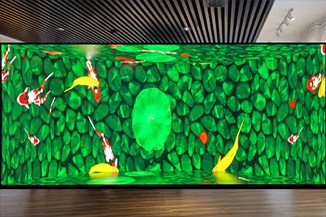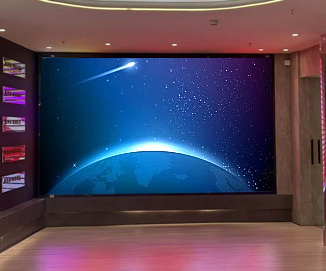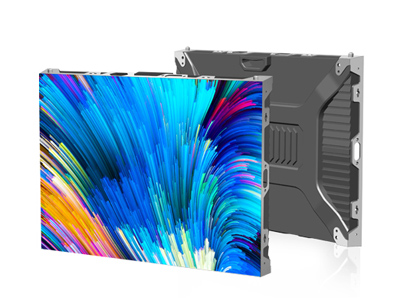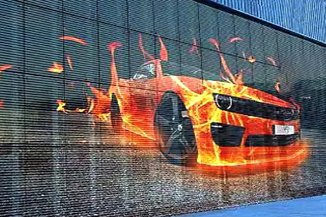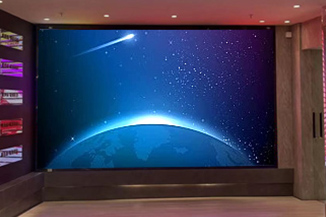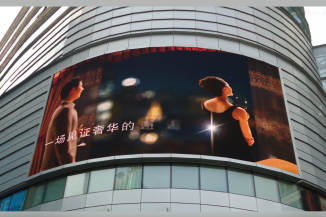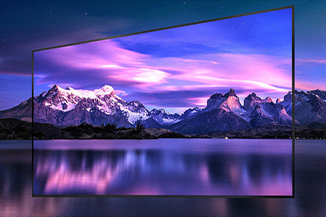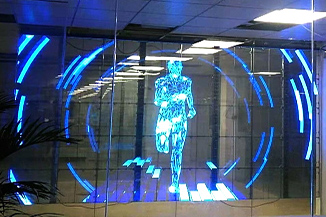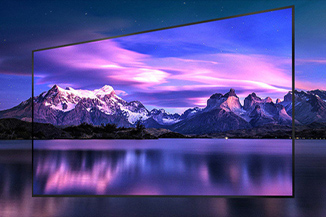Publisher: Supplier of LED Display Time: 2022-08-09 17:49 Views: 1508
Plagiarism is commonplace in China's manufacturing industry. "Made in China" was once regarded as a synonym for "plagiarism" and "shanzhai". Especially in the electronics manufacturing industry, "fake goods" are often more popular than "genuine products". The market welcomes. And plagiarism is also a "stubborn disease" in the LED display industry. From the upstream and downstream industry chain to the exact product function, appearance, etc., there are plagiarized and infringed phenomena.
I believe that many people in Shenzhen know that Shenzhen Huaqiangbei is a concentration camp for electronic products that are famous in China. There are many electronic components and supporting manufacturers around it. (PCB circuit board)" slogan, plagiarism "rampant" is evident.
Of course, this is the tip of the "plagiarism" iceberg. In fact, the LED display manufacturing industry chain is as small as a lamp bead, and the entire LED display product has "plagiarism" chaos. Why is "plagiarism" repeatedly banned? What is it that fuels this "unhealthy spirit" in the industry?
There are two reasons for this: First, innovation is difficult and copying is easy; second, infringement is easy, and identification is difficult. In particular, there are some industry "reciprocal plagiarists" who hold the rogue idea of "a big copy of LED display design, copying and copying to improve", and take their achievements as their own. In addition, the LED display manufacturing industry has a low entry threshold, and companies with little strength and qualifications are often allowed to enter the industry. They do not have core technologies themselves, nor do they have a lot of money to invest in product research and development. "fruit" in order to increase profitability.
At the same time, the difficulty of rights protection is also one of the reasons for the proliferation of plagiarism in the LED display industry. The growth model of China's LED display industry is relatively "barbaric", and the industry has never had a formal industry standard or normative system that can be used universally. Therefore, although there are many "patents" in the industry, the restrictive effect that can be achieved is very small.
On the other hand, the phenomenon of product homogeneity in the LED display industry is serious, and some products even have similar appearances.
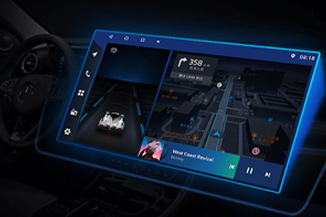
Finally, the huge amount of time and money needed to protect patent rights has discouraged some infringed screen companies. Therefore, many screen companies often choose to "open" the products they have worked so hard to develop. One eye is closed." Few took up legal weapons to defend their rights, and most of them were "verbal warnings." In this regard, many people in the industry ridiculed that "patent" is sometimes inferior to a piece of toilet paper, and the words are full of helplessness.
However, in fact, the most shameful thing is such blatant "plagiarism", which is that those who are not good at copying, not to mention imitating other people's products, have also produced a large number of shoddy "Xibei goods". To suppress the enterprises of other manufacturers.
It is difficult to draw a tiger by painting the skin
Hao Zhizhong, the former CEO of Xunlei, once gave a speech at Chaos Research Institute. At first glance, this view may seem contrary to traditional market values, but it makes sense when you think about it.
Although both original designed products and plagiarized products can meet their basic functions, "imitation" is "imitation" and can never replace genuine products. In the process of interviewing Mr. Qiao Yulong, the deputy general manager of Henan Haile Electronics, the largest LED display PCB manufacturer in China, he asked how he viewed the serious phenomenon of "copying and stereotyping" in the current industry. Mr. Qiao said: "Although they copy The board (PCB) is also the same as the board we designed by ourselves. It is 'drawing' around the realization of the display function, but the general copy board pays more attention to reducing the difficulty of the layout, and it is easy to ignore the details. With great effort, the quality of the products produced in this way often cannot be guaranteed.”
The immeasurable quality of plagiarized products is expected, but its harm is immeasurable to us.
First of all, people in the industry are very clear that the manufacturing process of an innovative LED display product is relatively complex, and it is necessary to control the concept of product design, the display effect achieved, and even the materials, processes, and technologies at multiple levels. Although counterfeit products that can only simply imitate the surface shape of the product, do not optimize the details well, and cannot achieve the expected display effect will be picked out and eliminated by the market sooner or later, the market will still be skeptical or even reject this product. This is undoubtedly a huge blow to those companies in the industry that insist on original design.
Finally, those companies in the industry that randomly copy other people's products, in the face of fierce market competition and the pressure of rising raw material costs, often choose to sacrifice product quality to maintain their own price advantage. For screen companies with technology research and development, they have more cost advantages. They often rely on "low prices" to seize the market, which not only seriously disrupts the market order, but also suppresses other screen companies that really focus on technology research and development, and even reduces the enthusiasm for technological innovation in the entire industry.
In the face of the current development status of the industry, it is almost impossible to eliminate the wind of plagiarism, but this does not mean that we will let this bad habit intensify. Therefore, if the screen enterprises want to escape the "curse" of plagiarism and embark on the "Sunshine Avenue", they must continuously improve their innovation capabilities. Therefore, those screen companies that lack R&D capabilities should actively make up for the insufficiency of technology, rather than relying on plagiarism to make a difference. As for those "rogues" in the industry, you are welcome, and you can directly greet the "big stick" of the law. valid reason! Blindly "laissez-faire" will only fuel the evil spirits of the industry, let the industry go into the abyss, and ultimately harm itself.
Of course, when we expect the industry to develop more regulated, we also hope that the market will become more rational. Don't look for small and cheap to make big trouble. When buying products, you must choose "genuine products" and reject "copycats"!
The article comes from Internet resources, if there is any infringement, please contact us to delete it in time.
